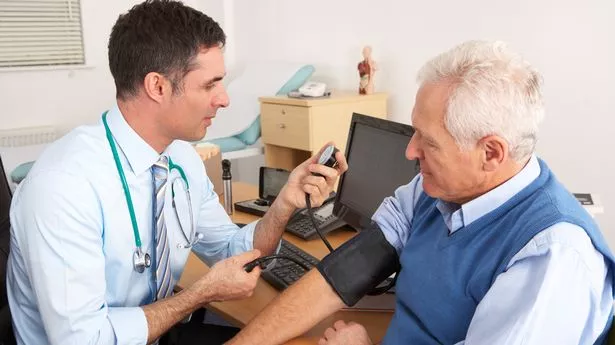The NHS has issued a warning against the use of decongestants for individuals with certain health conditions such as diabetes or high blood pressure. Decongestants, commonly used to provide temporary relief from symptoms of cold, flu, hay fever, allergic reactions, catarrh and sinusitis, work by reducing the swelling of blood vessels in the nose, thereby opening up the airways.
However, since these can be purchased over the counter without a prescription, it's crucial for people to know who should and shouldn't use them. According to the NHS, while most people can safely use decongestants, they are not suitable for everyone. It advised that certain groups of people should seek advice from a pharmacist or GP before using them.
Additionally, It cautioned against giving decongestants to children under 6 years of age. For children aged between 6 to 11, usage should not exceed five days without consulting a pharmacist. Pregnant individuals were advised to only use decongestants if instructed by a healthcare professional. Furthermore, decongestants in the form of tablets, liquids or powders that are ingested are not recommended for breastfeeding individuals.
The NHS emphasised that the patient information leaflet accompanying the medicine will provide details on who should avoid its use and who should seek advice prior to using it, reports Surrey Live. Who should speak to a doctor before using a decongestant?
- people taking other medicines
- people with diabetes
- people with high blood pressure
- people with an overactive thyroid gland (hyperthyroidism)
- men with an enlarged prostate
- people with liver, kidney, heart or circulation problems
- people with increased pressure in the eye glaucoma
Some products may solely contain decongestant medicine. However, many are marketed as "all-in-1" solutions that include decongestants, painkillers or antihistamines, according to the health service.
Recently, Dr Xand, a regular doctor on BBC Morning Live, advised viewers to stop splashing out on over-the-counter medications if they're battling a cold or flu. He suggested that certain nasal sprays could actually exacerbate your symptoms.
During his appearance on the show this week on November 19, he discussed nasal sprays and cautioned that "the stuff you can buy in the chemist is complicated to navigate". He explained that the first spray people often reach for are decongestant sprays.
These sprays "decrease the blood flow in your nose and they're very effective, but they do have side-effects and you can get a major rebound congestion."
"So when you stop using them the blood vessels in your nose have gotten used to using them so they wear off quite quickly and then you get more congestion afterwards. And it's actually a very well described phenomenon and it means you can get congestion going on and on and on for ages."
"So personally I would steer clear of them." Instead, he recommends "what can work is washing your nose out, get some of that mucus out which will restore your taste and smell and it will help you breathe a bit more easily."
